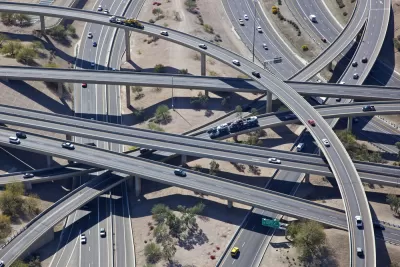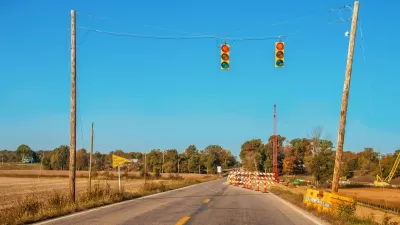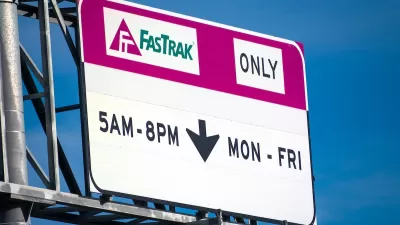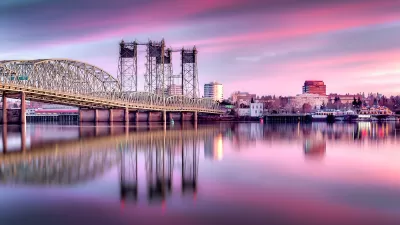It all depends on one thing: How much are travelers willing to pay for a shorter trip?

In deciding whether to undertake highway expansion projects—which can cost billions of dollars—projected time savings for travelers are often a major consideration. So if travelers aren't willing to pay as much as current wisdom suggests for shorter trips, that would "call into question the rationale for investing public funds in highway projects."
And indeed, after some slightly wonky deliberations, City Observatory's Joe Cortright concludes that "many investments of scarce public resources in additional unpriced road capacity isn’t economically worthwhile for the travelers who use it."
There's a "rule of thumb," Cortright says, that "travelers value their time at something close to half their wage rate." But according to a recent paper that looked at use of high-occupancy toll (HOT) lanes, the certainty of arriving at a particular time is actually far more important to most travelers.
A more accurate rule of thumb might be that "the typical user values travel time savings at about $3 per hour, and reliability improvements at about $23 per hour."
FULL STORY: What HOT lanes reveal about the value of travel time

Planetizen Federal Action Tracker
A weekly monitor of how Trump’s orders and actions are impacting planners and planning in America.

Congressman Proposes Bill to Rename DC Metro “Trump Train”
The Make Autorail Great Again Act would withhold federal funding to the system until the Washington Metropolitan Area Transit Authority (WMATA), rebrands as the Washington Metropolitan Authority for Greater Access (WMAGA).

The Simple Legislative Tool Transforming Vacant Downtowns
In California, Michigan and Georgia, an easy win is bringing dollars — and delight — back to city centers.

DC Backpedals on Bike Lane Protection, Swaps Barriers for Paint
Citing aesthetic concerns, the city is removing the concrete barriers and flexposts that once separated Arizona Avenue cyclists from motor vehicles.

In These Cities, Most New Housing is Under 441 Square Feet
With loosened restrictions on “micro-housing,” tiny units now make up as much as 66% of newly constructed housing.

Albuquerque’s Microtransit: A Planner’s Answer to Food Access Gaps
New microtransit vans in Albuquerque aim to close food access gaps by linking low-income areas to grocery stores, cutting travel times by 30 percent and offering planners a scalable model for equity-focused transit.
Urban Design for Planners 1: Software Tools
This six-course series explores essential urban design concepts using open source software and equips planners with the tools they need to participate fully in the urban design process.
Planning for Universal Design
Learn the tools for implementing Universal Design in planning regulations.
Smith Gee Studio
City of Charlotte
City of Camden Redevelopment Agency
City of Astoria
Transportation Research & Education Center (TREC) at Portland State University
US High Speed Rail Association
City of Camden Redevelopment Agency
Municipality of Princeton (NJ)





























